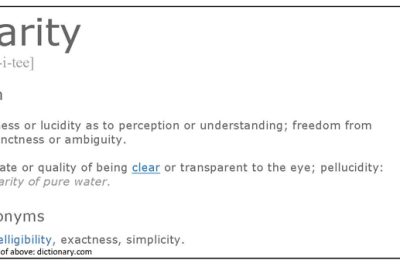
Signal for Business: Unpacking The Signal Companies, Inc

The world of business is constantly evolving, and understanding the historical context of major players is crucial for grasping current trends and opportunities. One such significant player, The Signal Companies, Inc., played a pivotal role in shaping industries ranging from automotive to aerospace. Known primarily for its innovative approach to engineering and environmental improvement, the company has left a lasting legacy that continues to influence today's business landscape.
Founded in 1928, The Signal Companies began its journey as the Signal Oil and Gas Company. Over the decades, it expanded its horizons and expertise through strategic acquisitions and forward-thinking initiatives. By exploring the firm's rich history, major acquisitions, and its eventual merger with AlliedSignal in 1985, we can uncover valuable lessons in resilience, adaptation, and strategic growth—key concepts that are essential as we look for a signal for business in this dynamic environment.
- Overview of The Signal Companies, Inc.
- Key Industries and Areas of Operation
- Major Acquisitions and Their Impact
- Expansion into Aerospace: The Garrett Corporation Acquisition
- Environmental Innovations: UOP Inc. and Beyond
- Other Notable Subsidiaries of The Signal Companies
- The 1985 Merger with AlliedSignal
- Legacy and Influence on Today's Business Landscape
- Conclusion: The Enduring Impact of The Signal Companies, Inc.
Overview of The Signal Companies, Inc.
The Signal Companies, Inc. emerged as a significant player in multiple sectors, showcasing its versatility and ambition to push technological boundaries. Originally focusing on oil and gas, the company adeptly transformed itself into a diversified conglomerate with a keen eye on innovation and sustainability. Key industries of operation included energy development, aerospace engineering, and environmental improvement, illuminating the company's commitment to address pressing global challenges.
Historical Background: From Signal Oil and Gas to Conglomerate
The roots of The Signal Companies can be traced back to its inception as the Signal Oil and Gas Company in 1928. Initially focused on traditional oil extraction, the company realized the importance of adapting to the ever-changing market demands. In 1968, it rebranded itself as The Signal Companies, Inc., signifying a shift towards diversification and expansion.
This transformation aligned with broader trends in the economy, where conglomerates were emerging as a dominant business model. The ability to mitigate risks associated with being a single-industry company became increasingly appealing, leading The Signal Companies to explore numerous industries through acquisition and investment. Each decision made during this period laid the groundwork for future growth and innovation.
Key Industries and Areas of Operation
Throughout its operational history, The Signal Companies, Inc. established itself in several key industries, including but not limited to:
- Automotive Engineering: Delivering advanced components and systems that enhanced vehicle performance.
- Aerospace Engineering: Focusing on producing critical aircraft components, primarily through acquisitions.
- Energy Development: Resources and services aimed at enhancing energy efficiency.
- Environmental Improvement: Developing technologies to address pollution and promote sustainability.
Each of these sectors was characterized by rapid innovation and transformation, shaping the landscape of the respective industries. The company's diversified portfolio not only fortified its market position but also contributed positively to societal and environmental challenges.
Major Acquisitions and Their Impact
Acquisitions played a central role in defining The Signal Companies, Inc.'s trajectory. Through a series of strategic purchases, the company not only expanded its operational capacity but also bolstered its technological expertise. Notable acquisitions included:
- Garrett Corporation (1964): A significant step into the aerospace industry, producing critical components for U.S. military and commercial aircraft.
- UOP Inc. (1975): Focusing on environmental control systems, this acquisition underscored the company's commitment to sustainability within the petroleum industry.
- Dunham-Bush: Enhancing capabilities in heating, ventilation, and air conditioning systems.
- Ampex Corporation: Strengthening technological advancements across various electronic systems.
- Wheelabrator-Frye: Expanding operational engagement with waste disposal and energy conversion systems.
Each acquisition provided The Signal Companies with an edge over competitors, fostering innovation and creating a robust platform for future endeavors. The integration of these acquisitions emphasizes the value of strategic growth, creating a signal for business leaders today as they contemplate their own paths to expansion.
Expansion into Aerospace: The Garrett Corporation Acquisition
The acquisition of Garrett Corporation in 1964 marked a transformative moment for The Signal Companies, Inc., as it propelled the company into the booming aerospace sector. Garrett Corporation was renowned for its specialized production of turbochargers and other key components essential for aircraft engines.
This milestone acquisition represented a significant leap forward; it positioned The Signal Companies as a formidable player in the aerospace industry, particularly during a time when governmental defense budgets were soaring. The company's newfound capabilities allowed for diversification into military applications, including systems for fighter jets and commercial transport aircraft.
Environmental Innovations: UOP Inc. and Beyond
The acquisition of UOP Inc. was one of the early indicators of The Signal Companies' commitment to environmental innovations. Established as a leader in petrochemical technology, UOP Inc. specialized in process technology and design for the energy and chemical industries. The acquisition was part of a broader vision to develop environmental control systems to improve efficiency in the petroleum sector, reducing emissions and energy waste.
The introduction of UOP's technologies helped The Signal Companies stay ahead of stringent environmental regulations and public scrutiny regarding energy consumption. This move not only bolstered corporate responsibility but also created significant value for the company, providing a competitive edge in a market increasingly focused on sustainability—and serving as a critical signal for business about the importance of adapting to environmental needs.
Other Notable Subsidiaries of The Signal Companies
Throughout its operational history, The Signal Companies, Inc. cultivated a diverse range of subsidiaries that propelled innovation and growth across various sectors. Some notable subsidiaries included:
- Dunham-Bush: Known for its heating, ventilation, and air conditioning systems.
- Ampex Corporation: An early innovator in data storage and real-time video recording technology.
- Wheelabrator-Frye: Recognized for its roles in waste management and energy conversion systems.
Each subsidiary not only enhanced the technological capabilities within its domain but also reinforced the overall strength of The Signal Companies as a diversified conglomerate committed to solving some of the world's pressing problems.
The 1985 Merger with AlliedSignal
The merger between The Signal Companies and AlliedSignal in 1985 marked a pivotal point in the company's history. AlliedSignal, itself an established player in aerospace and defense, saw significant value in joining forces with The Signal Companies to create a more formidable and diversified organization.
This merger allowed both companies to leverage their strengths, creating opportunities for enhanced R&D, access to broader markets, and greater operational efficiencies. The combination of their talents and resources fostered an environment ripe for innovation, significantly shaping the frame of both entities in the subsequent decades.
Legacy and Influence on Today's Business Landscape
The story of The Signal Companies, Inc. is one of adaptability, foresight, and strategic positioning. Its legacy can be seen in many successful modern corporations that have embraced a diversification strategy through acquisitions, evidenced by the importance placed on innovative approaches to overcoming industry challenges. The company's focus on sustainability and environmental responsibility remains particularly relevant today, as businesses of all sizes strive to incorporate eco-friendly practices.
Furthermore, The Signal Companies' transformation from a single-industry company into a diversified conglomerate stands as a powerful signal for business leaders who seek growth and relevance in increasingly competitive markets. The lessons learned from their journey resonate deeply with current trends, emphasizing the value of strategic flexibility and a commitment to future-focused solutions.
Conclusion: The Enduring Impact of The Signal Companies, Inc.
In retrospect, The Signal Companies, Inc. commanded attention not only for its pioneering spirit and expansive reach across multiple industries but also for its forward-thinking approach to innovation and environmental consciousness. From its early days as an oil and gas company to its eventual evolution into a diversified conglomerate, the company's journey offers rich lessons for aspiring business leaders.
Signal for business aspiring to navigate complex market dynamics must recognize the importance of diversification, adaptability, and strategic acquisition, as exemplified by The Signal Companies. Today, many corporations follow in the footsteps of those transformative companies, drawing inspiration from their ability to integrate sustainability with profitability.
The legacy of The Signal Companies, Inc. continues to shape the operational models of many contemporary enterprises, encouraging an approach that prioritizes both growth and social responsibility. We stand to learn much from the past, and in looking to the future, this enduring impact remains evident.
Did you find this article helpful? Signal for Business: Unpacking The Signal Companies, Inc See more here General.
Leave a Reply






Related posts